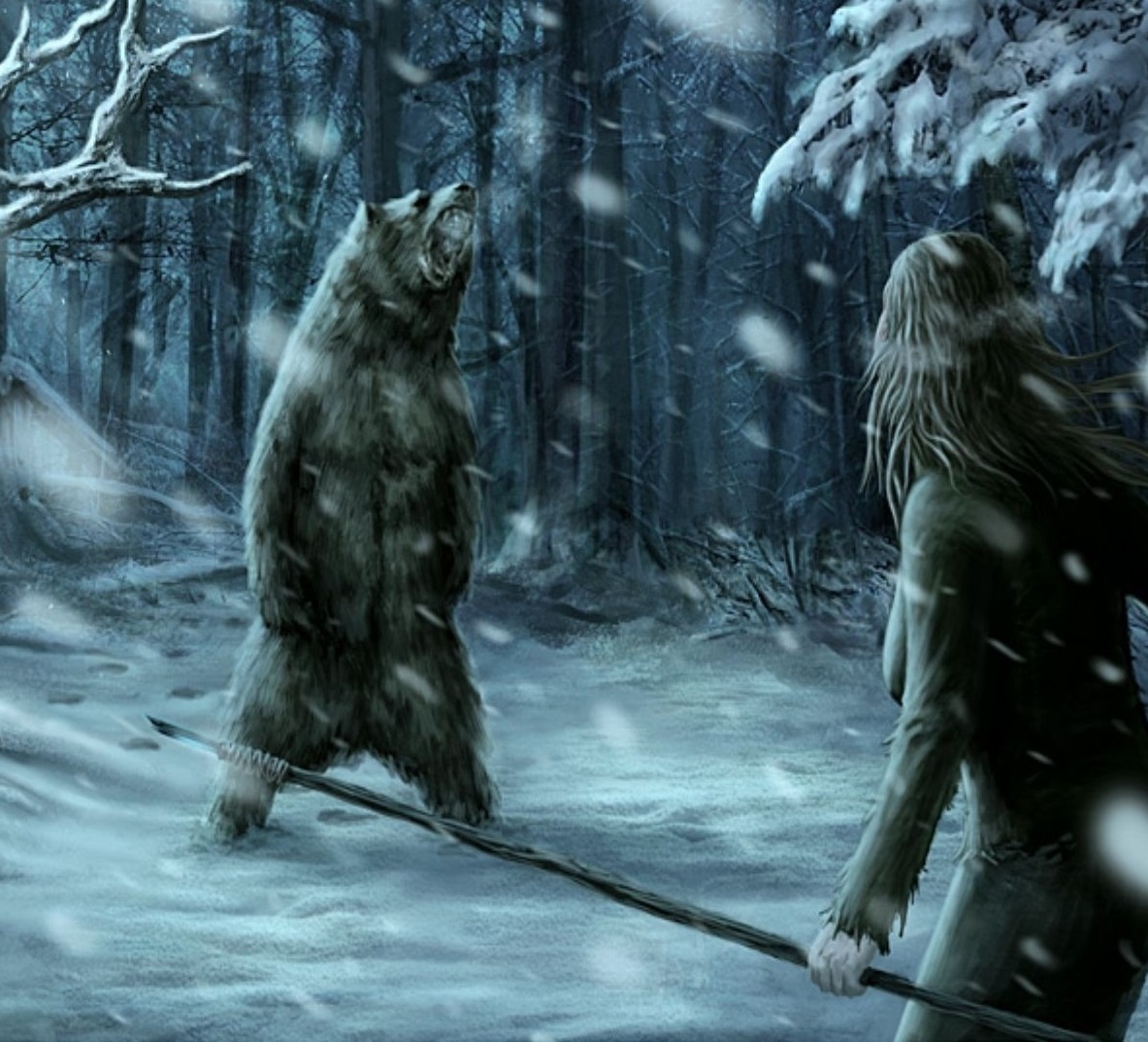
Introduction
Welcome to the game. This house rules document contains everything from character creation to various other house rulings and guidelines. Please read this page and continue on from there at your own leisure.
Expectations
What to expect out of this game, the DM, and you. Think of the following as "Terms and Conditions", but ones you actually read. If you are unable to work with or compromise with the DM on any of the following, then you may want to reconsider playing the game.
Here are the rules of the table:
-
Communicate. Any questions, issues, or concerns - even about the DM - should be communicated with the DM as soon as possible - this just helps ease issues and solve them faster than leaving them unanswered.
-
Respect. Have respect for your fellow players, and respect the game. Don't talk out of line when not appropriate, and leave personal vendettas at the door (or at least the other room).
-
Participate. Try to be invested, and roleplay your character AS your character - not as yourself. Of course, this is sometimes unavoidable, but see the game as a theater play, and you are playing a character in a story, a story with other players.
The Game
This game is going to be bizarre, complex, and sometimes heartbreaking. The setting for this game is the world of Pryxis, a land of high magic, sprawling technology and living gods. Magic and technology have begun to blend together into one, yet some reaches of the world remain untouched by their influences.
This is a world where the good guys don't always win, the villains don't always lose, heroes exist on all sides, and people will do horrible things for the perceived "good of all".
As gritty, mysterious and grimdark as this world is, there is a fair amount of hope, joy and fun to be had though. When away from the warfronts and crumbling ancient ruins - there are drinks, carnivals, mirth and merry to help distract from the otherwise bleak outlook of life here, and it can be easily found where restless citizens seek to make the world a little brighter.
Generally, things are pretty much as it seems. Most normal DnD tropes are here. Monsters roam the countryside. Evil beings live in curved spires of spike and stone, dragons hide away in the world adding to their hordes, while adventures both good and evil take part in making the world lean a little closer to their chosen side.
Prepare thineselves. Combat is always important, but survival and roleplay are most important above all.
The DM
I, the Dungeon Master, will be spending considerable amounts of effort and time preparing the sessions, homebrew, creatures and the game as whole. It is understood that the players rarely do what is expected (about 5% of the time they do what is expected), so much of my work may not be seen. Note that this does not mean I will railroad the players/characters in any way.
I plan to be incredibly liberal with the actions that you will have during each and every session, and only in extremely important, or foolish times will i go out of my way to help and/or correct certain actions (This is less of a correcting hand, more of a guidance).
I promise to do my utmost to not let there be an environment of "main character syndrome", and if for some reason that occurs I will rectify it as i can - no one character or person is a main character, and no one should expect such.
I also will be rewarding to those who are creative with solutions or those who seek to roleplay and truly play their characters out, maybe even a bit too rewarding at times, but I believe that the core to a truly great, memorable game is the investment that you make with your character.
You
The following are hard expectations for you and your fellow players. However, the end goal of these rules and expectations is for everyone to have fun at the table with the least number of issues.
Intrinsically, the rules of the table - Communicate, Respect, and Participate - are the primary expectations. If you are constantly distracted during the game via arguments or real world opinions - step back and remember: THIS IS A GAME, leave your baggage at the door or pick it up and go. This isn't being said with any malice whatsoever, but instead with care to everyone at the table. Of course, there are exceptions. Sometimes life stresses you out so much it distracts you from what's going on in-game. Shit happens, and we can work with and around that - we won't play if stress is high or arguments are fresh.
Lastly, we ask that you refrain from the following:
-
Metagaming. Play what your character knows - or would know. I.E: Ask if they would know something. The DM goes to great lengths to make new monsters, traits, and items to discourage metagaming.
-
Rules Lawyering. At least fervently. If the DM asks about a rule, let them know. Don't correct other players, and don't fight the DM on a ruling - they are effectively the overgod of the world.
-
Trolling. Or otherwise being downright childish. Don't fuck over the party cause it's funny to you. Don't give your character disruptive gimmicks for no reason. Examples include psychosis, bipolar disorder, split personalities, absolute pacifism, kleptomania, etc. Don't think you can bang everything in sight. This game doesn't give you the freedom to release your inner asshole tendencies with no regard for others.
PART 1
Characters & Rules

Character Creation
Basics
You will be creating your character within the world setting presented by the DM - this includes the time period, continent, kingdom, and local area - and with the other party members in mind, remember, no one person or character is a "main character".
Character Options
- Races
All core books are already preaccepted, as well as all DM confirmed PDF's. Some may also be tweaked within reason. - Classes
All core books are already preaccepted, as well as all DM confirmed PDF's. Some may also be tweaked within reason. - Ability Scores
We will be rolling for ability scores. We will roll for 7 values. To get a value you will be rolling 4d6, dropping the lowest die. Once you have 7 stat values, drop the lowest, and this will give the stats that you will use. - Backgrounds
Any background that is available for use can be used, within reason, as long as it follows the basic background formula. - Alignment.
Most Campaigns have a general alignment idea in mind based on the locale - consult the DM for specifics. - Starting Level
Starting level is 1 - unless stated otherwise by the DM. - Hit Points
You may roll for your hit points or take the average every level after the first level, taking whichever is higher. - Multiclassing
Multiclassing is allowed. However, it must happen naturally through gameplay. If you intend to multiclass, notify the DM in advance so that it can be discussed. - Spells
All core and approved PDFS allowed. Homebrew spells are subject to review before being allowed. Since this is a High Magic setting, there may be several spells never seen before - especially 10th - 12th level spells. - Leveling
Milestone leveling based on roleplay, story, lore, combat, and more. Expect leveling up to take a significant amount of time - as the levels must be earned, rather than "bought" with experience points.
Character Guidelines
Your character's personality needs to be their own. They exist outside yourself, and are not you - therefore, they may act outside how you would typically act, so long as it is within their character.
Your character will be adventuring and exploring a dangerous life much unlike what they (or you) have known before, so be prepared for that to change and mold them through time as well.
When creating their personality and backstory, please follow these guidelines:
- Their Own Person
Your character should be someone you're willing to walk in the shoes of and experience their life as they would; making choices they would make. Thus, they need meaningful traits that would help them make the decisions they would make. - Motivated
Your character should be willing to participate. They need goals (or schemes). Long term and short term ideals and ambitions they are actually working towards. Do not make a character who is just adventuring for no reason. Where does your character want to be in 20 years? What goal would they throw their life away for? - Communicative
Your character should be willing to take part in discussion (not necessarily argument), imparting their own opinions and ideas. You don't always have to be pitching ideas, but try to participate in discussions - even if they're menial. - Cooperative
Your character must be willing to work with the party for some reason. Clashes in ideals are okay, as is the roleplay that comes with it - to an extent. However, do not create a loner or free spirit who would rather be doing their own thing all the time.
Knives
Incorporating this idea into any campaign allows characters to be more 3-Dimensional, and realistic. As a DM, I will leave it here, in hopes that some of you read and provide your lovely DM with the artillery shells I need to attack you all for emotional and or dramatic development.
When writing a character's backstory, it's important to include a certain number of "knives". Knives are essentially anything that the DM can use to raise the stakes of a situation for your character - kinda like stabbing a knife into the table to symbolize "SHIT GOT REAL".
Anything that can make a conflict personal, like a threatened loved one or the appearance of a sudden archenemy. They're called "knives" because the players lovingly forge them and present them to the DM so that the DM can use them to stab the player over and over again until they're having fun --- excited yet?
Here are some examples:
-
A named character your character cares about, living or dead (e.g. relative, childhood friend, mentor, or pet)
-
A phobia or trauma your character has or currently experienced
-
A mystery in your character's life (e.g. unknown parents, unexplained powers, sudden savior)
-
An enemy or rival your character has
-
Any ongoing obligation or loyalty your character has
-
An obligation your character has failed
-
A crime - serious or cumulative minor ones - your character has committed
-
A crime your character has been accused of, falsely or otherwise
-
A favored item or heirloom your character cherishes
-
A secret your character keeps (e.g. false name, false knive)
-
A debt your character owes, be it money, a favor, or even a life
-
A mistake that haunts your character
-
Any superstitions your character believes (refrain from bigotry and racism - these will only cause issues and grind the story to a halt.)
-
Any fears, be it irrational or from a past experience, your character deals with
-
A story, tale, or myth that has stuck with your character and fuels their actions
-
A grandiose goal your character runs towards
-
A hobby or profession your character engages in
Your backstory should include at least 3-5 knives. They should be varied; not every one of your knives should be family members, nor should they all be crimes you've committed. The DM is more than willing to read 10+ page backstories. Not all knives should be known by your fellow players.
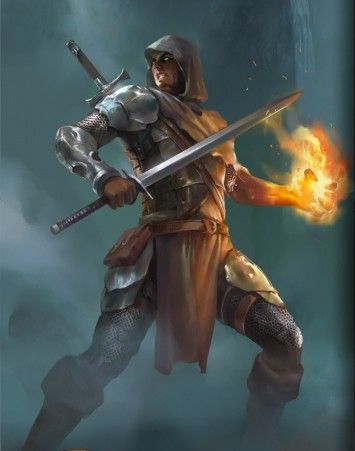

Base Rules Expanded
The following section seeks to expand upon currently existing rules and add a form of "bounded realism" to allow relative relatability to real-world examples.
Levels and Ability Score Tiers
Within the D&D multiverse, aside from the presence of races, subraces, classes, subclasses, feats, and all that will define the AGENCY of a character - there exist two key facets the define the CAPABILITY of a creature or character: Level and Ability Score
The following section presents the tiers of levels and ability scores and basic explanations as to their realistic functions in relation to the characters and creatures which hold them.
Level
Level measures a character's experience in the adventuring world. A 1st-level character is inexperienced in the adventuring world. Although he or she might have been a simple soldier and done dangerous things before, level 1 marks a character's entry into the continuous punishing-yet-rewarding peril of the adventuring lifestyle.
Levels can best be bound into "Tiers of Play" - a way to represent the impact and renown that a character commands or carries as their adventures become known. The most common tier of play is Tier 2, and the rules of reality (the game) tend to breakdown further down the tiers*.
Tiers of Play
- Tier 1 - Local Heroes (1st - 4th)
- Tier 2 - Heroes of the Realm (5th - 10th)
- Tier 3 - Masters of the Realm (11th - 16th)
- Tier 4 - Heroes of the World (17th - 20th)
- Tier 5 - Masters of the World (21st - 25th)
- Tier 6 - Cosmos Walkers (26th - 30th)
Ability Score
Ability Score measures a character's essence and reach of being. Most common folk rarely have the opportunity, time, or agency to push themselves past the average limit they may have been born with. Most individuals may only experience a significant increase or decrease in their ability a handful of times throughout their life.
Level & Ability Degradation
Most characters in the D&D multiverse only reach the height of their prime level and ability through the constant challenges presented through adventuring, quests, combat and study.
Over time, if characters do not continue the pursuit of a rigorous adventuring lifestyle - the possibility of level loss and ability decay do exist when adventurers retire or dwell within the lap of luxury for too long.
** Epic Levels are an incredible rarity, as most campaigns never reach this far. It is recommneded to limit the proficiency bonus to +6 for the purpose of game mechanics - but you may utilize the parenthesized values if you want truly powerful characters.
Level
| Level | Proficiency Bonus | Title |
|---|---|---|
| 0 | +2 | Inexperienced (Commoners) |
| 1 | +2 | Fledgling Adventurer |
| 2 | +2 | Hero Initiate |
| 3 | +2 | Amateur Adventurer |
| 4 | +2 | Local Hero |
| 5 | +3 | Adept Hero |
| 6 | +3 | Veteran Adventurer |
| 7 | +3 | Ideal |
| 8 | +3 | Pathfinder |
| 9 | +4 | Local Legend |
| 10 | +4 | Hero of the Realm |
| 11 | +4 | Professional Hero |
| 12 | +4 | Master Adventurer |
| 13 | +5 | Archetype |
| 14 | +5 | Globetrotter |
| 15 | +5 | Storied Legend |
| 16 | +5 | Master of the Realm |
| 17 | +6 | Super Hero |
| 18 | +6 | Grandmaster Adventurer |
| 19 | +6 | Kingdom Shaker |
| 20 | +6 | Hero of the World |
Epic Level**
| Epic Level | Proficiency Bonus | Title |
|---|---|---|
| 21 | +6 (+7) | Legendary Hero |
| 22 | +6 (+7) | Fabled Adventurer |
| 23 | +6 (+7) | Exemplar |
| 24 | +6 (+7) | World Shaker |
| 25 | +6 (+8) | Master of the World |
| 26 | +6 (+8) | Mythological Hero |
| 27 | +6 (+8) | Glorious Adventurer |
| 28 | +6 (+8) | Exalted |
| 29 | +6 (+9) | Transcendant Mortal |
| 30 | +6 (+9) | Cosmos Walker |
Strength
Strength measures bodily power, athletic training, and the extent to which you can exert raw physical force.
| Score | Bonus | Title | Details |
|---|---|---|---|
| 0 | --- | Inert. | Lacking the strength to move or control yourself, and any organs you might have are too weak to function. You are practically dead. |
| 1 | -5 | Impaired. | Incredibly weak; Unable to move independently and has difficulty lifting their own limbs. Bedridden or confined to a chair. |
| 2-3 | -4 | Feeble. | Can stand with support, but will collapse under any load. Uses a cane, walking stick, or other people for support when not sitting or lying down. |
| 4-5 | -3 | Puny. | Can stand on their own and carry very small loads, but not much more. |
| 6-7 | -2 | Weak. | Visibly weak or feeble compared to average. Has difficulty pushing objects their own weight. |
| 8-9 | -1 | Scrawny. | Slightly weaker than average. Has trouble lifting heavy objects. |
| 10-11 | 0 | Average. | Can lift heavy objects for a short time and you can perform simple physical labor for a few hours without break. |
| 12-13 | +1 | Fit. | Can pass minimum military fitness test. Can carry heavy objects and throw small objects medium distances; and can perform physical labor for half a day without break. |
| 14-15 | +2 | Athletic. | Surpass military fitness test with ease. Visibly toned, and able to carry heavy objects with one arm for a good distance. Less likely to getting exhausted from physical labor. |
| 16-17 | +3 | Muscular. | Surpass special force military fitness test. Can break objects like wood with bare hands and raw strength; and can perform heavy physical labor for several hours without break. |
| 18-19 | +4 | Brawny. | Surpass top-of-the-line commando fitness test. World class athlete, can perform the work of multiple people in physical labor. |
| 20-21 | +5 | Heavily-Muscled. | Can out perform most world class athletes and commandos. Exhibits the pinnacle of humanoid brawn, being able to out-lift several people. |
| 22-23 | +6 | Superhumanoid. | Strength exceeds the natural limits of the humanoid body. Can out-perform a multitude of people in a combined effort. |
| 24-25 | +7 | Supernatural. | Strength is otherworldly; on par with the likes of giants and dragons. Can perform incredible feats that astound even the strongest individuals. |
| 26-27 | +8 | Herculean. | Brawn is legendary; easily able to perform fabled feats of raw strength that could put most strong creatures to shame. |
| 28-29 | +9 | Godlike. | Raw Strength approaches that of the gods. Considered some of the strongest beings on the material plane. |
| 30+ | +10 | Divine. | Might incarnate. Strength is of a divine nature, easily capable of passively performing impossible feats of raw physical power. |
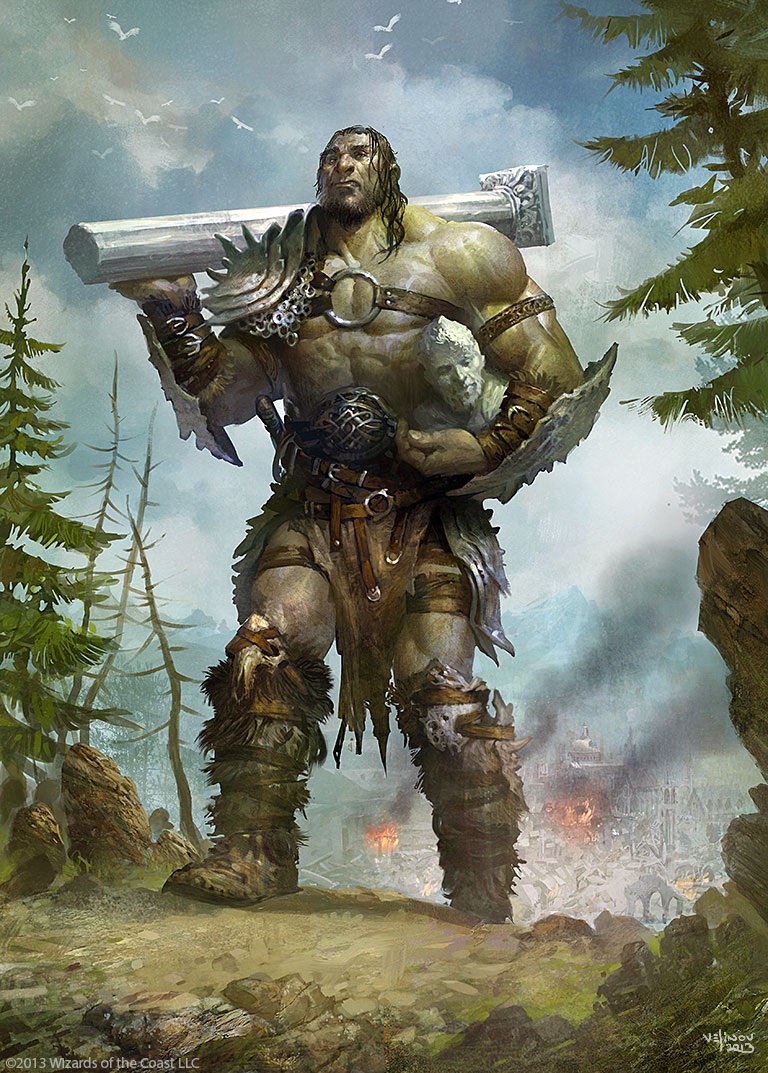



Dexterity
Dexterity measures bodily agility, reflexive actions, and balance.
| Score | Bonus | Title | Details |
|---|---|---|---|
| 0 | --- | Immobile. | Unable to move of own volition and lack any reflexive movements, remaining helplessly motionless. You are functionally dead. |
| 1 | -5 | Debilitated. | Can do simple coordination puzzles with obvious effort. Barely mobile; exhibiting the most basic movements and reactions at slow speeds and probably significantly paralyzed. |
| 2-3 | -4 | Impaired. | Unable to move without noticeable effort, resistance or pain. Trouble with basic actions like eating and drinking. |
| 4-5 | -3 | Challenged. | Exhibits physical difficulty moving, but is still fully mobile for incredibly short periods of time. Cannot hold objects without serious effort or focus. |
| 6-7 | -2 | Slow. | Very slow reaction times; probably a significant klutz with their fastest and most focused movements. |
| 8-9 | -1 | Clumsy. | Mobile but somewhat slow and may occasionally trip over their own feet. Lack of balance or skill at precise tasks. |
| 10-11 | 0 | Average. | Average ability to balance and can utilize tools if needed, but not well. Usually capable of catching small objects tossed directly at them. |
| 12-13 | +1 | Coordinated. | Can complete a basic obstacle course with some effort. Somewhat adept with precise tasks if it's something they've practiced and are concentrating. |
| 14-15 | +2 | Agile. | Can nimbly traverse an obstacle course. Often able to hit stationary targets. |
| 16-17 | +3 | Deft. | Can easily traverse a difficult obstacle course. Capable of effective basic parkour. Light on their feet and often able to hit moving targets. |
| 18-19 | +4 | Dexterous. | Can traverse a difficult obstacle course with no effort. Capable of advanced acrobatics and parkour. Capable of dodging a small number of thrown objects. |
| 20-21 | +5 | Graceful. | Can surpass any expectations of an advanced obstacle course. Moves like water, reacting to situations with almost no effort. Capable of dodging a large number of thrown objects. |
| 22-23 | +6 | Effortless. | Moves like wind, exhibiting a level of grace beyond what the humanoid body is capable of. Capable of dodging an incredibly large number of thrown objects. |
| 24-25 | +7 | Uncanny. | Movements are hard to follow and reflexes are such that they can even react to the movements of a quickling. Capable of dodging bullet-like projectiles with effort. |
| 26-27 | +8 | Spontaneous. | Reflexes are legendary, nearing complete autonomy. Seen as having a level of physical precognition. Capable of dodging bullet-like projectiles with no effort. |
| 28-29 | +9 | Flawless. | Coordination and reaction speeds approaching the likes of a deity. Nigh impossible to miss their mark. Capable of dodging the fastest bullet-like projectiles with no effort. |
| 30+ | +10 | Divine. | Grace Incarnate. Dexterity is of a divine nature, able to passively perform impossible feats of speed and agility. |
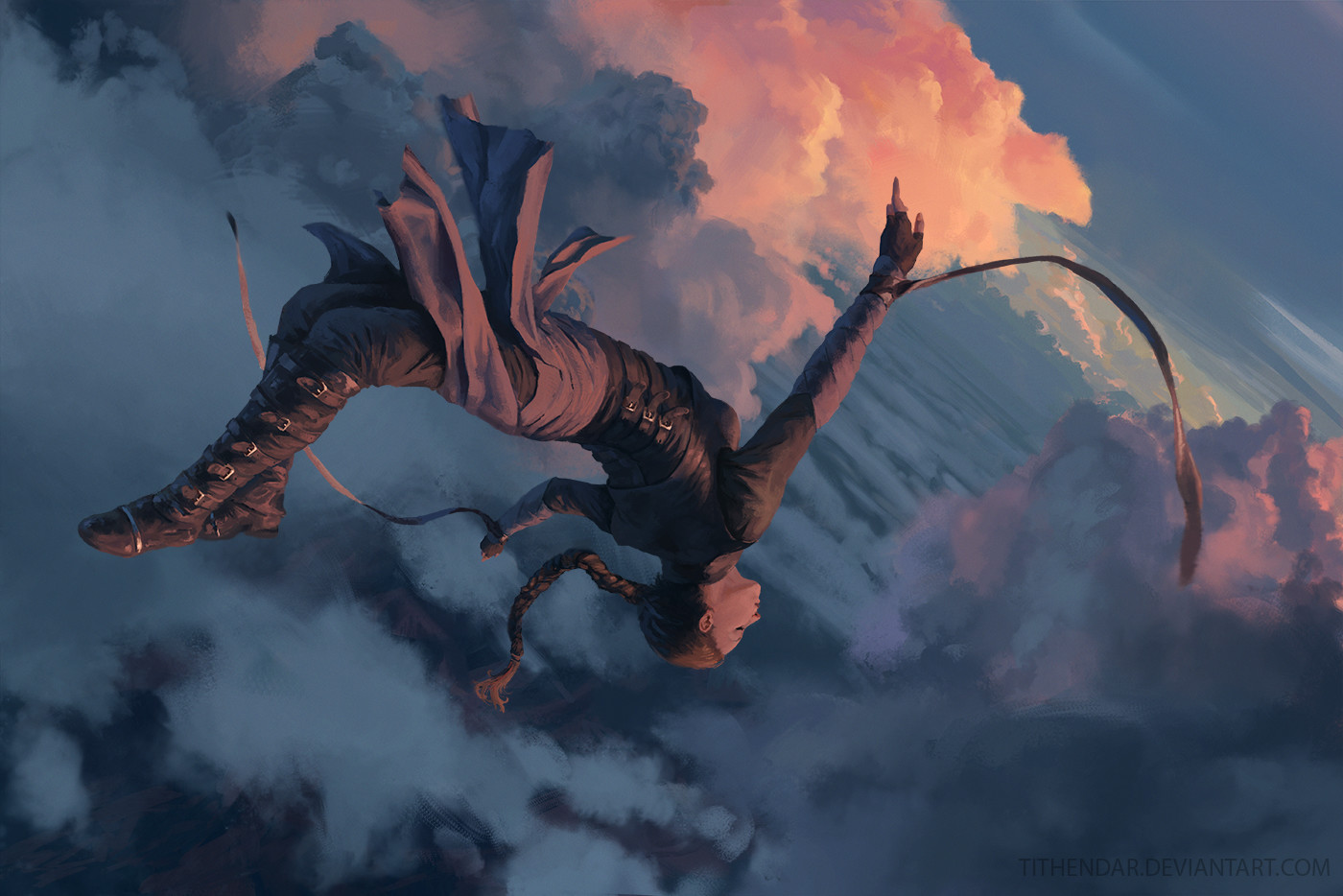



Constitution
Constitution measures health, stamina, and vital force.
| Score | Bonus | Title | Details |
|---|---|---|---|
| 0 | --- | Unalive. | Possessed of no bodily functions; they are inactive or nonexistent. Devoid of life and animation. You are physically dead. |
| 1 | -5 | Immunodeficient. | Barest minimal immune system; body reacts violently to any foreign contaminants. Has trouble staying awake due to ever-present fatigue. |
| 2-3 | -4 | Frail. | Muscles are incredibly weak and they suffer frequent broken bones from simple physical tasks. Fatigued almost half the time. |
| 4-5 | -3 | Delicate. | Bruises very easily and is often sick with mild to serious illnesses. Fatigued by mild activity and has to rest often during trips. |
| 6-7 | -2 | Sickly. | Unusually at-risk of complications from disease and prone to infection. Can be active in short bursts but takes a while to recover. |
| 8-9 | -1 | Malnourished. | Easily winded and often contracts mild sicknesses. Capable of being active, but must do so slowly and at staggered paces. |
| 10-11 | 0 | Average. | Occasionally may contract mild illnesses or injuries and recover at a typical rate compared to the general population. Can keep up with most activities with regular breaks. |
| 12-13 | +1 | Healthy. | Less likely to contract mild illnesses or injuries but recovers quickly. Sometimes fatigued by more rigorous and continuous activities. |
| 14-15 | +2 | Tough. | Easily able to shrug off most illnesses and injuries. Capable of achieving twelve hours of manual labor on most days. |
| 16-17 | +3 | Hardy. | Rarely is kept down or disabled by a moderate illness or injury. Can function with little loss of ability after very little rest over a few days. |
| 18-19 | +4 | Hale. | Can shrug off a major illness or injury with little effort. Can stay awake for several days seemingly without fatigue. |
| 20-21 | +5 | Resilient. | Almost never gets sick and can fully recover from a damaging injury in days or even hours. Can push to remain fully awake and robustly active for a multitude of days. |
| 22-23 | +6 | Unyielding. | Never gets sick except for the most debilitating diseases and major injuries can be circumvented with focus. Pushes past the standard exhausting limits of humanoid anatomy. |
| 24-25 | +7 | Tireless. | Cannot be held back by any natural illness or injury and can grit past supernatural pain with effort. Seemingly never falters or tires even against incredible stress. |
| 26-27 | +8 | Indomitable. | Easily brushes past supernatural pain and can endure deathly levels of damage. Fatigue feels like a fever dream and almost impossible to achieve. |
| 28-29 | +9 | Nigh-Invulnerable. | Nearly impossible to subdue except through the most extreme supernatural circumstances. Can survive almost anything upon the material plane without falter. |
| 30+ | +10 | Divine. | Endurance Incarnate. Constitution is of a divine nature, nigh impossible to kill through even cosmic means. |
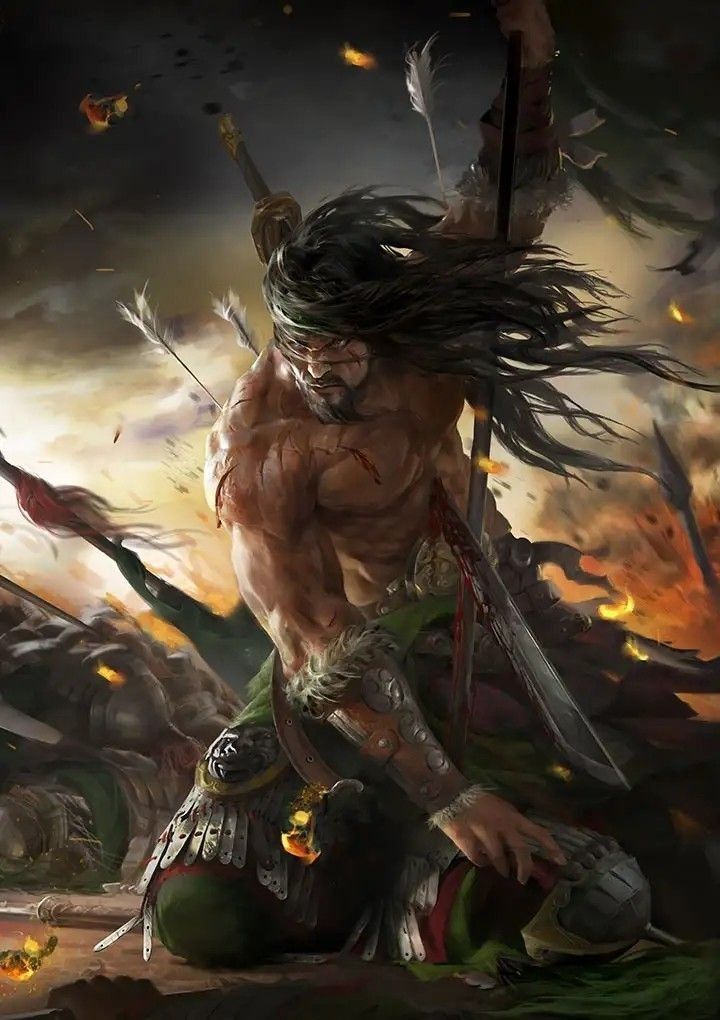






Intelligence
Intelligence measures mental acuity, accuracy of recall, and the ability to reason.
| Score | Bonus | Title | Details |
|---|---|---|---|
| 0 | --- | Torpid. | Unable to think as you are in an unconscious coma-like stupor and state of complete mental inactivity. You are mentally dead. |
| 1 | -5 | Unthinking. | Incapable of logical thought or reasoning. Behavior revolves around simple reactions to immediate stimuli. Cannot even communicate basic emotions non-verbally. |
| 2-3 | -4 | Animalistic. | Lacks most understanding of any language and most non-verbal communication. Acts on instinct alone, but can still follow simple planning and tactics. |
| 4-5 | -3 | Simpleminded. | Capable of imited speech and often resorts to charades and mimicry to express thought. Can follow immediate instructions with several steps, but complexity leads to confusion. |
| 6-7 | -2 | Dim-witted. | Can speak one language poorly with frequent misuse and mispronunciation. Has trouble following trains of thought, forgets most personally unimportant things. |
| 8-9 | -1 | Dumb. | Can speak one language fairly well, but most likely cannot read or write - can be taught with effort. Can follow basic plans and develop simple plans of their own. |
| 10-11 | 0 | Average. | Can read or write, but only what is absolutely necessary - Knows just enough to get by in life. Can follow complex plans with some explanation and develop moderate plans themselves. |
| 12-13 | +1 | Clever. | Can express their own ideas clearly in one or more languages - Fairly Logical, but may overestimate their own knowledge. Can follow complex plans easily and develop complex plans. |
| 14-15 | +2 | Smart. | Fluent in a language and a handful of other languages at a rudimentary level - Intelligent, able to understand new tasks quickly. Able to solve logic puzzles mentally with reasonable accuracy. |
| 16-17 | +3 | Gifted. | Has a deep knowledge of various forms of communication - Fairly Intelligent, able to absorb information easily. May invent new processes to utilize knowledge or materials more effectively. |
| 18-19 | +4 | Erudite. | Can communicate ideas to other individuals without sharing a form of communication - Very Intelligent, can learn new ideas instantly. Forms plans and tactics several steps in advance. |
| 20-21 | +5 | Mastermind. | Expert in various forms of cross-communication between disciplines and individuals - Highly Intelligent, capable of Holmesian leaps of logic to integrate info into current or future plans. |
| 22-23 | +6 | Polymath. | Mental acuity, memory, and capacity to learn and reason surpass the combined efforts of several sentient minds. Near photographic memory and can plan for a near endless number of variables. |
| 24-25 | +7 | Psychometer. | Possessed of the intellect akin to several genius-minds acting in-tandem. Effortlessly retains and absorbs info, seemingly solving complex puzzles and equations within seconds. |
| 26-27 | +8 | Hypermnesic. | Has cultivated a true photographic memory; allowing the recall of everything they have ever learned with clarity. Operates on Autosentience: an ever-shifting info conceptualization. |
| 28-29 | +9 | Metamind | Mental lexicon and cerebral acuity contain impossible levels of information and utilize their memory processes as a quantum network. Can compute outcomes in a Non-Euclidean fashion. |
| 30+ | +10 | Divine. | Intellect Incarnate. Intelligence is of a divine nature, possessing a degree of omniscience and panmnesia. |
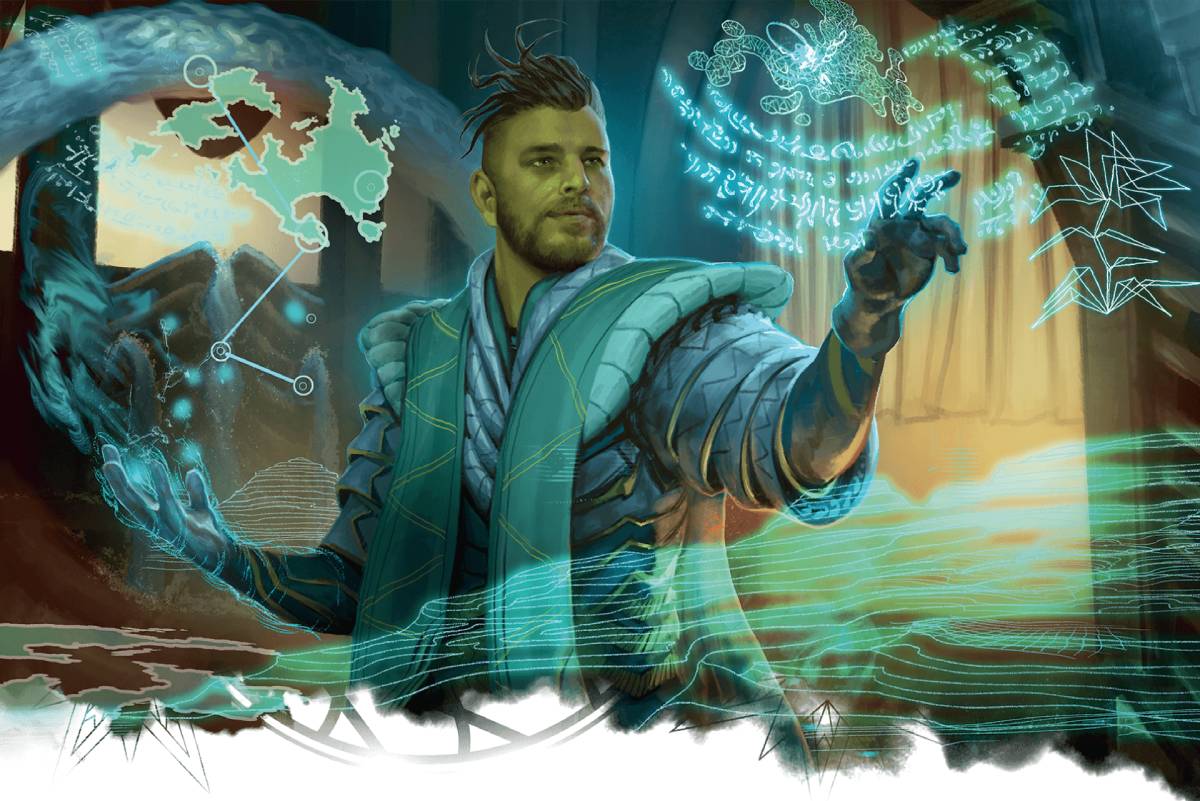



Wisdom
Wisdom reflects how attuned you are to the world around you and represents perceptiveness and intuition.
| Score | Bonus | Title | Details |
|---|---|---|---|
| 0 | --- | Insentient. | Within a deep state of unfeeling unconsciousness, completely oblivious and unknowing to all stimuli. You are responsively dead. |
| 1 | -5 | Unresponsive. | Seemingly incapable of conscious response or perceiving anything outside immediate focus, barely aware |
| 2-3 | -4 | Oblivious. | Rarely notices important or prominent things, people, or occurrences within environment. Has object permanence but little else. |
| 4-5 | -3 | Improvident. | Lacks forethought, but notices some items, people, or occurrences while they are present but doesn't use that information in decision making. |
| 6-7 | -2 | Incompetent. | Often fails to exert common sense. Acts impulsively with little awareness of what's happening around them. |
| 8-9 | -1 | Absentminded. | Utilizes common sense sometimes, but acts impulsively. Forgets or opts not to consider options before taking action. Has some awareness of important items, people and occurances. |
| 10-11 | 0 | Average. | Can make reasoned decisions most of the time based on common sense. Able to exert self-control most of the time, their hunches are as right as they can be wrong. |
| 12-13 | +1 | Experienced. | Able to read basic body language to comprehend emotional states. Can discern changes in the environment, but may not know what. Gut feelings are generally right, but can still be mixed. |
| 14-15 | +2 | Insightful. | Can read people and situations fairly well, and can get hunches about a situation that doesn't feel right. Can control their own emotions and not act on impulse. |
| 16-17 | +3 | Shrewd. | Notices all but the subtlest of changes in people or situations. Has sound judgment and hunches are rarely wrong. Can discern other creatures actions right before they take place. |
| 18-19 | +4 | Wise. | Reads people and situations very well, almost unconsciously. Notices and remembers most details of items, people, or occurrences. If they feel like something is wrong - it is. |
| 20-21 | +5 | Sagacious. | Nearly prescient, able to reason far beyond logic. Can get an accurate read on how an event will soon take place within a new location seemingly on instinct. |
| 22-23 | +6 | Prophetic. | Can discern the most minute of differences amongst excited, turbulent or obscured situations. Interprets incredibly slight changes in body language and environmental details. |
| 24-25 | +7 | Awakened. | Possessed of an incredibly deep awareness of people and surroundings on a constant basis. Could determine if a pin has been moved in a pitch black room - and by who. |
| 26-27 | +8 | Enlightened. | Can unravel the deeper mysteries of sentient and insentient beings on a single sense alone. Is gifted with the wisdom and cognizance to resolve nearly any situation. |
| 28-29 | +9 | Nigh-Omnipresent | Inner understanding approaching a near ever-present level. Has come to know great metaphysical truths to understand the inherent feeling of the universe. |
| 30+ | +10 | Divine. | Awareness Incarnate. Wisdom is of a divine nature, granting a consciousness and meditative state akin to omnipresence. |
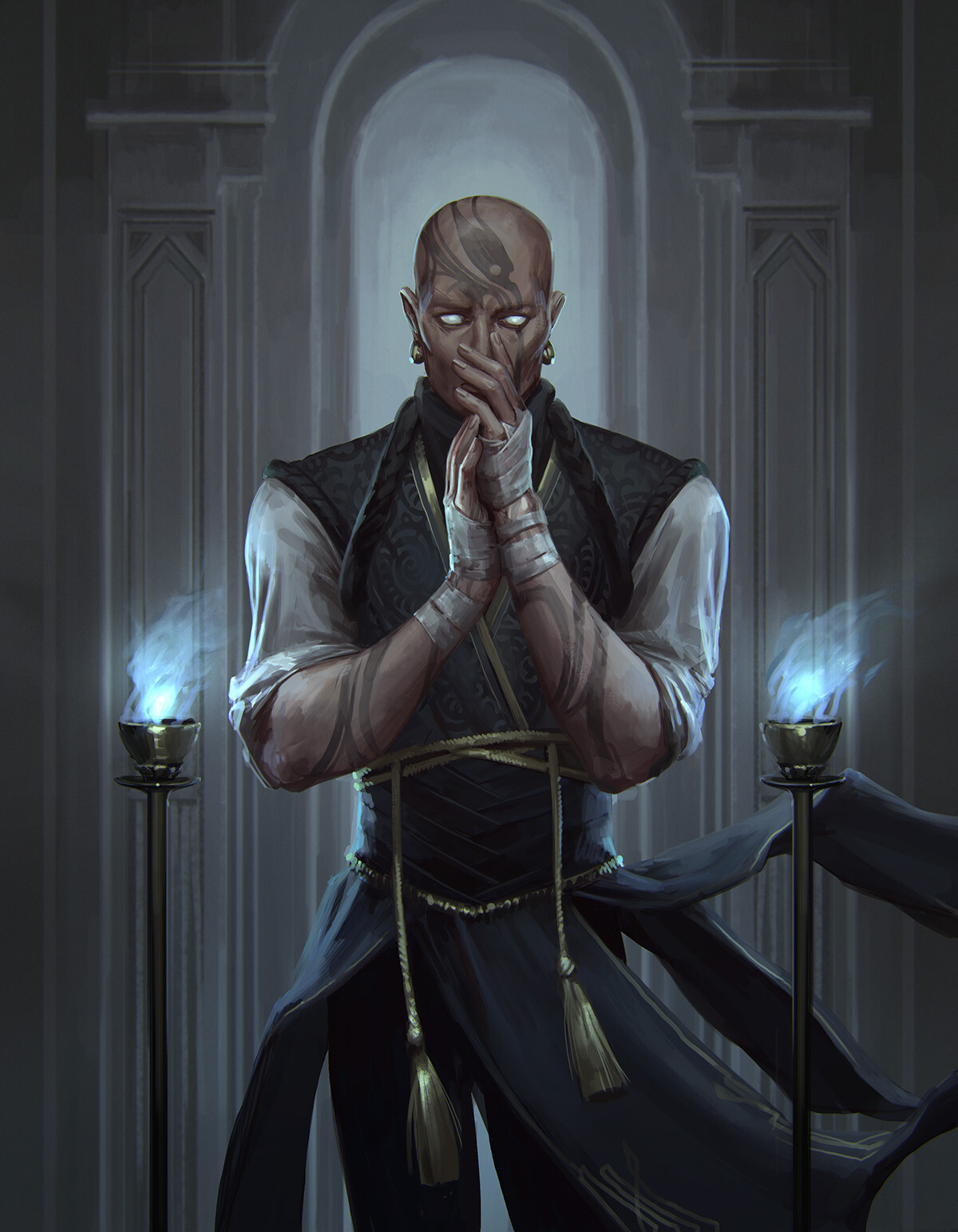



Charisma
Charisma measures your ability to interact effectively with others. It includes such factors as confidence and eloquence, and it can represent a charming or commanding personality.
| Score | Bonus | Title | Details |
|---|---|---|---|
| 0 | --- | Inanimate. | Exists in an expressionless state of insentience. Unable to consciously interact with the environment and blends into the background unnoticingly. You are expressively dead. |
| 1 | -5 | Unintelligible. | Barely Conscious and cannot think for themselves. Has an alien, strange or repellent personality and is incredibly tactless and non-empathetic. |
| 2-3 | -4 | Unimaginative. | Minimal independent thought. Will follow almost anyone. Almost no social awareness and relies upon others to think in their stead. |
| 4-5 | -3 | Socially Inept. | Difficulty in thinking of others as people and how to interact with them. Lacks basic social skills and is generally off-putting and may makes others uneasy. |
| 6-7 | -2 | Unsociable. | Has difficulty in social situations. Terribly reticent, uninteresting, or rude. Can form friendships, but is considered "an acquired taste". |
| 8-9 | -1 | Boring. | Considered something of a bore. May make people mildly uncomfortable or is simply clumsy and awkward in conversations or social situations. |
| 10-11 | 0 | Average. | Capable of polite conversation. Tends to blend in with the crowd and go with whatever others wish to do. |
| 12-13 | +1 | Well-Spoken. | Mildly interesting and/or intimidating. Knows what to say to the right people or what buttons to push to get a response. |
| 14-15 | +2 | Sociable. | Often considered popular or infamous. Knows what to say and do with most people, and is very confident in a debate. Can be pushy or brash - but convincing. |
| 16-17 | +3 | Memorable. | Quickly likable, respected, or feared by many people. Knows how to get individuals and groups to do what they want. Good at getting their way through diplomacy or intimidation. |
| 18-19 | +4 | Influential. | Adored, admired, or dreaded by almost everyone they may know. Can entertain people easily and can effectively convince them to see their side of beliefs and arguments. |
| 20-21 | +5 | Magnetic. | Renowned for wit, personality, and/or looks and almost always get their way. Inspires a sense of loyalty and may be a natural born leader, influencer, tyrant, or manipulator. |
| 22-23 | +6 | Unforgettable. | Draws crows and disperse masses through force of personality alone. Few people can forget them - even if having seen them only once. Easily inspires, manipulates, and frightens. |
| 24-25 | +7 | Captivating. | People and creatures are almost innately drawn or repelled by their sheer presence - most cannot willingly ignore them. Few can resist the speech, allure, beauty or fright they inspire. |
| 26-27 | +8 | Mesmeric. | Presence is almost palpable and commands such intense attention that creatures struggle to focus on anything other than them - regardless of awe, terror, or pacification. |
| 28-29 | +9 | Sublime. | Being has become godlike. Commands such excellence, grandeur, beauty, or absolute horror that it can overpower the wills, minds, and senses of most people. |
| 30+ | +10 | Divine. | Presence Incarnate. Charisma is of a divine nature, sheer force of will can alter the fate of the masses by whim alone. |
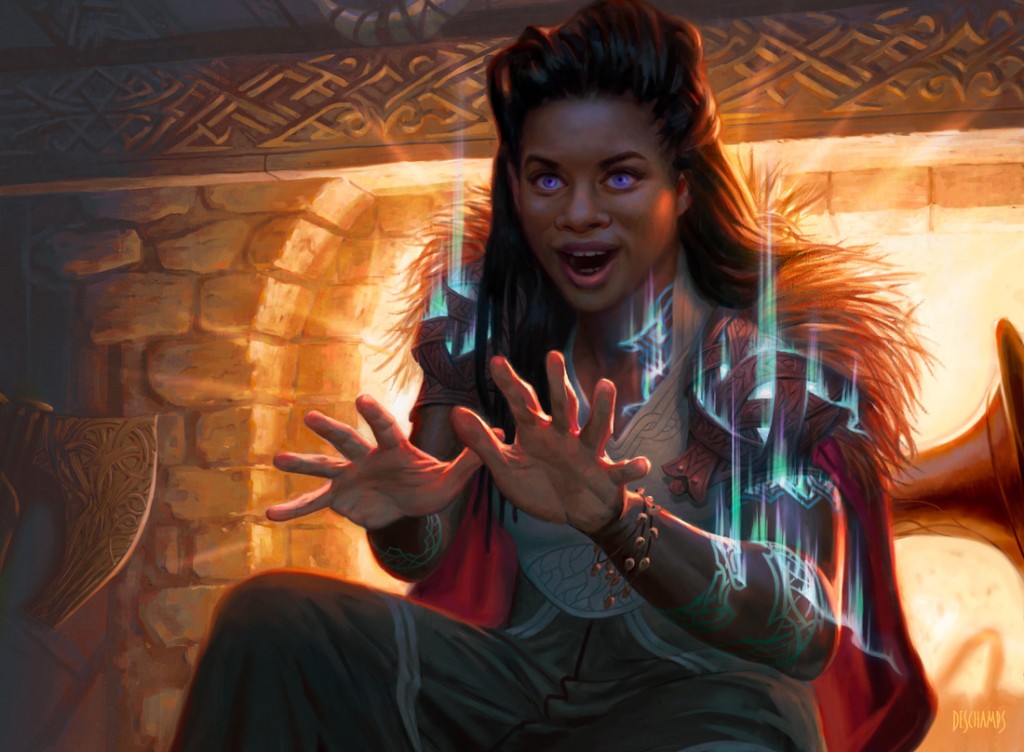



Unique House Rules
Additional Skill
In the world of Pryxis, with the presence of technology that functions separate from magical sources, there now exist methods of engaging with that technology through new trades and training.
This skill is Mechanics, and it is an Intelligence-based skill that allows creatures and people to interact with various forms of technology in an easy manner.
Mechanics
The GM might ask you to make an Intelligence (mechanics) check to determine the function of a technological object, derive the composition of an object, structure, or item, or craft/repair a non-magical item.
Aetherion Damage
The world of Pryxis has the following new damage type.
-
Aetherion. - Thought to be the spiritual twin of Force damage, Aetherion is, in simplistic terms, soul energy. Where Force damage shreds and tears down matter at the molecular level, Aetherion damage only targets souls and spirits and destroys them, rendering most bodies completely inert and "empty"
All constructs of an artificial nature - not including those powered by a soul or similar spiritual power source - are immune to the effects of Aetherion, as they do not possess the "material" that is affected by this damage type. No form of resistance, immunity, or vulnerability exists for such damage.....that is known.
Appearance: Aetherion looks like ghostly, pale-colored flame that cloys and draws outward in every direction, as if expanding from a point in space and barely affected by gravity.
Assorted Damage Types
The following section lists the damage types under their general categories throughout the worlds and planes.
Physical
Physical damage is the most common form of damage - involving the effects from weapons and natural armaments.
- Bludgeoning - blunt force and crushing; bruising
- Piercing - puncture and stab; penetration
- Slashing - rip and tear; cutting
Elemental
Elemental damage is the second most common form of damage - usually present through elemental plan influences and the effects brought upon by natural disasters.
- Acid - dissolving and corrosive; chemical burns
- Cold - freezing and frost; frigid
- Fire - burning and blazing; heat
- Lightning - shocking and sparking; electric
- Poison - sickening and venomous; toxic
- Thunder - booming and shattering; deafening
Supernatural
Supernatural damage is rare, in that it is usually brought upon by effects from magic, psionics, and the outer planes.
- Force - arcanic and kinetic; eldritch
- Psychic - mental and synaptic; maddening
- Radiant - light and hallowed; holy
- Necrotic - decay and corruption; profane
Cosmic
Cosmic damage is incredibly rare, nearly unheard of in many circumstances - these damage types present fundamental effects which pertain to the background energy of the multiverse and it's mechanical functions.
- Aetherion* - energy and souls; spirit
*(Aetherion damage may be broken down into subsequently any other form of magic and damage - as it represents a fundamental building block of all existence.)






Banned Aspects
Characters cannot access the Lucky feat nor the Wish spell under normal circumstances - as they both are rare aspects of reality.
Bonus Proficiencies
Characters gain a number of extra tool proficiencies or languages equal to their Intelligence modifier (minimum of 0).
This allows a more intelligent creature to know much more - as is intended.
Charm Person & Friends
If the target failed its first save, when the spell ends, it has to make another save to realize that it was under the effect of the spell. If it makes that second save it becomes hostile, as described in the original rules. If it fails that second save, it's merely confused about what happened (think 'using the force on a weak mind').
The target may not have been targeted by this spell by the same caster in the past 24 hours. Otherwise, the spell's utility is so limited that it might as well just be a "open lock when the person with the key is around" spell.
Expert Characters
When you choose your character class, instead of choosing two proficient skills - you instead may choose one proficient skill and gain expertise in one skill listed below. When you have expertise in a skill, you add double your proficiency bonus to the result of ability checks made with that skill.
| Class | Skill Expertise |
|---|---|
| Artificer | Mechanics |
| Barbarian | Intimidation |
| Bard | Performance |
| Bloodhunter | Investigation |
| Cleric | Medicine |
| Druid | Nature |
| Fighter | Athletics |
| Monk | Acrobatics |
| Paladin | Religion |
| Ranger | Survival |
| Rogue | Sleight of Hand |
| Sorcerer | Insight |
| Warlock | Persuasion |
| Wizard | Arcana |
Dropping to 0 HP
When a character drops to 0 hitpoints they gain 1 level of exhaustion - as their body reels from the experience of losing their physical stability.
Feats at 1st Level
All characters (and some creatures) gain a feat at first level. This feat cannot be replaced with an ability score improvement.
The best recommendation is to restrict 1st level feats to racial feats - or special abilities unique to that character (with the DM's discretion).
Feats at 10th level
All characters (and some creatures) gain an additional feat at tenth level. This feat cannot be replaced with an ability score improvement.
This is to reflect a certain "turn of fate" for creatures as they begin to exhibit more powerful capabilities on their own.
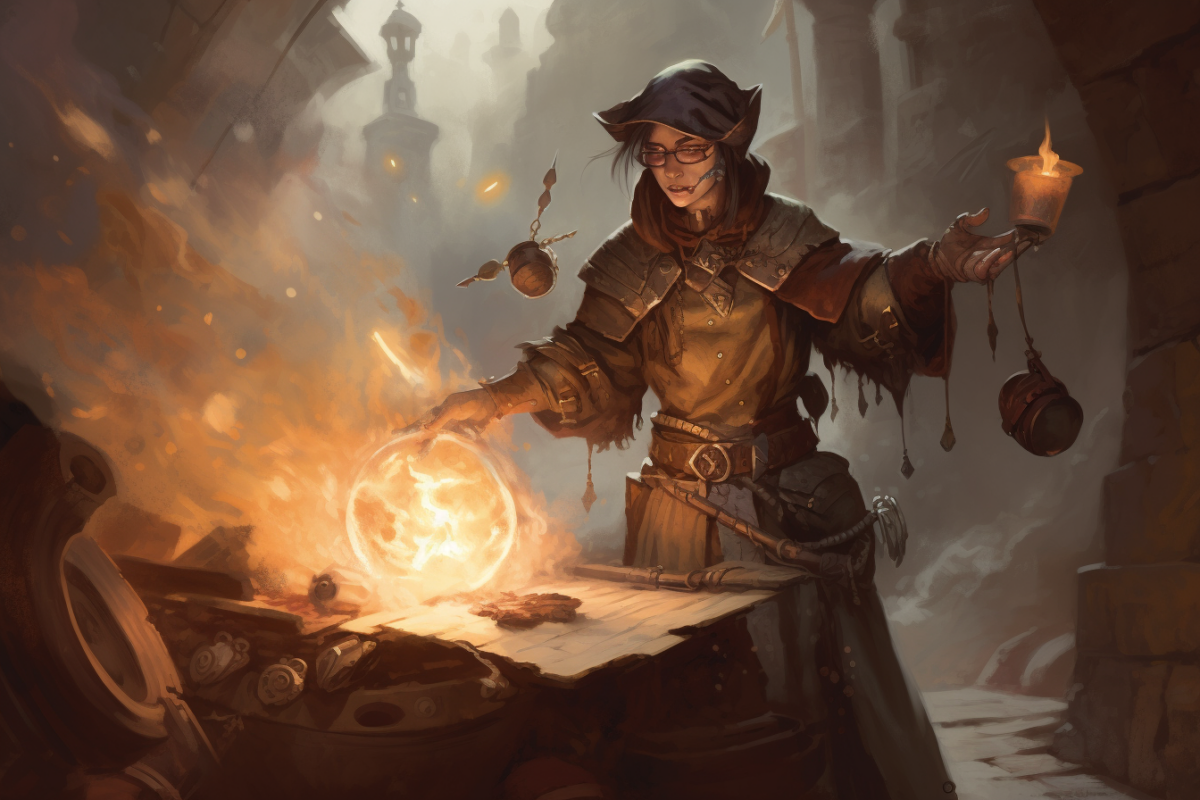

New Mythic language
The world of Pryxis has the following new language:
Supernal - The precursor language and script; wordpseak of the gods. Father language of abyssal, celestial, infernal and primordial - and subsequently all other languages.
Supernal (or Urspeech) is a universal language of form itself, understandable by any sentient mind (which hears the words as if they are spoken in its own native language).
Supernal is the keystone of the magic known as Onomancy (or word power).
Learning Supernal is the highest form of language - and cannot be learned under natural circumstances; normally requiring godly tutelage or a divine spark.
Knowing Supernal allows you to understand most other languages - but not necessarily able to speak, read, or write them.
Supernal Script takes the form of intricate spirographic patterns that shift and pulse as the words are spoken - and is incredibly hard to learn how to write.
No basic ammunition
Because nobody wants to have to go to the 'fletcher' or 'artillerist' each time they are in town, each character has unlimited basic ammunition - unless the DM states otherwise - they may visit the fletcher or artillerist when seeking more specific ammo though.
Potion Consumption
Drinking a potion yourself only takes a Bonus Action. Feeding one to someone else is an Action.
If you choose to take an Action to drink a restoration potion (healing or mana), you instead gain the maximum number of hitpoints or manapoints that potion would be able to grant.
This is subject to change at the DM's discretion.
Shield Doffing
Doffing a shield can be done using the free use of an object interaction, similar to drawing or dropping a weapon.
Donning a shield still requires an Action, but this provides a little bit more flexibility in combat, allowing for dramatic actions.
Taking 10
When not threatened or distracted, you may choose to take 10 - Instead of rolling 1d20 for the skill check, calculate your result as if you had rolled a 10.
Taking 10 requires the following:
- A character proficient in the skill check at hand.
- 10 minutes of nonthreatening circumstances and no distractions.
For many routine tasks, taking 10 makes them automatically successful.
In most cases, taking 10 is purely a safety measure - you know (or expect) that an average roll will succeed but fear that a poor roll might fail, so you elect to settle for the average roll (a 10). Taking 10 is especially useful in situations where a particularly high roll wouldn’t help.
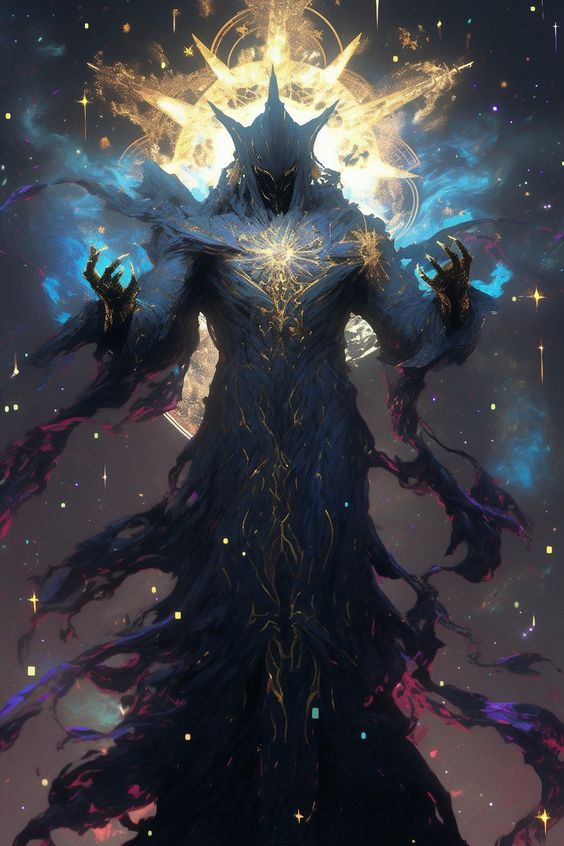

Inspiration Variant System (Karma)
Instead of the Typical Inspiration system, one may swap it out with a system that grants even more agency to the players: The Karma Points System
Karma Points
Karma is the sum of a person's actions in this current and previous states of existence which influences their fate in future states of being.
Karma points act in a similar manner. They are influenced by the player's dice rolls, and influence future events. Every roll, no matter how insignificant in terms of narrative, is now important to the player and offers excitement.
Normally a natural 20 on a save or ability check has no special meaning beyond being a high roll, but this system rewards those rare occurrences with more than simply the highest likelihood of success. With Karma Points, the player may use the karma that they have gathered to influence or determine the character's existence in the world, giving them more opportunities to alter the events that take place.
Acquiring Karma
Each player begins the campaign with 3 karma points.
During the course of a session a player gains a karma point any time they roll a natural 20 on an ability check, or a saving throw forced upon them or against their will.
These points persist between sessions. A Player may have no more than 5 karma points at any one time.
Spending Karma
The karma point system is designed to be a player tool, allowing them to influence the world in a way their character's normally can't. Most of the options presented are under the control of the player exclusively, not their character.
As such, players should spend karma points in whatever way they find most fun rather than thinking about how their character would use them - because to the characters, these 'karma points' do not exist.
The karma point system is not tied to the action economy, none of the abilities require any effort on the character's part - being seen more as "lucky chance", "divine providence", or "uncanny skill". A player may use any of these abilities at any time.
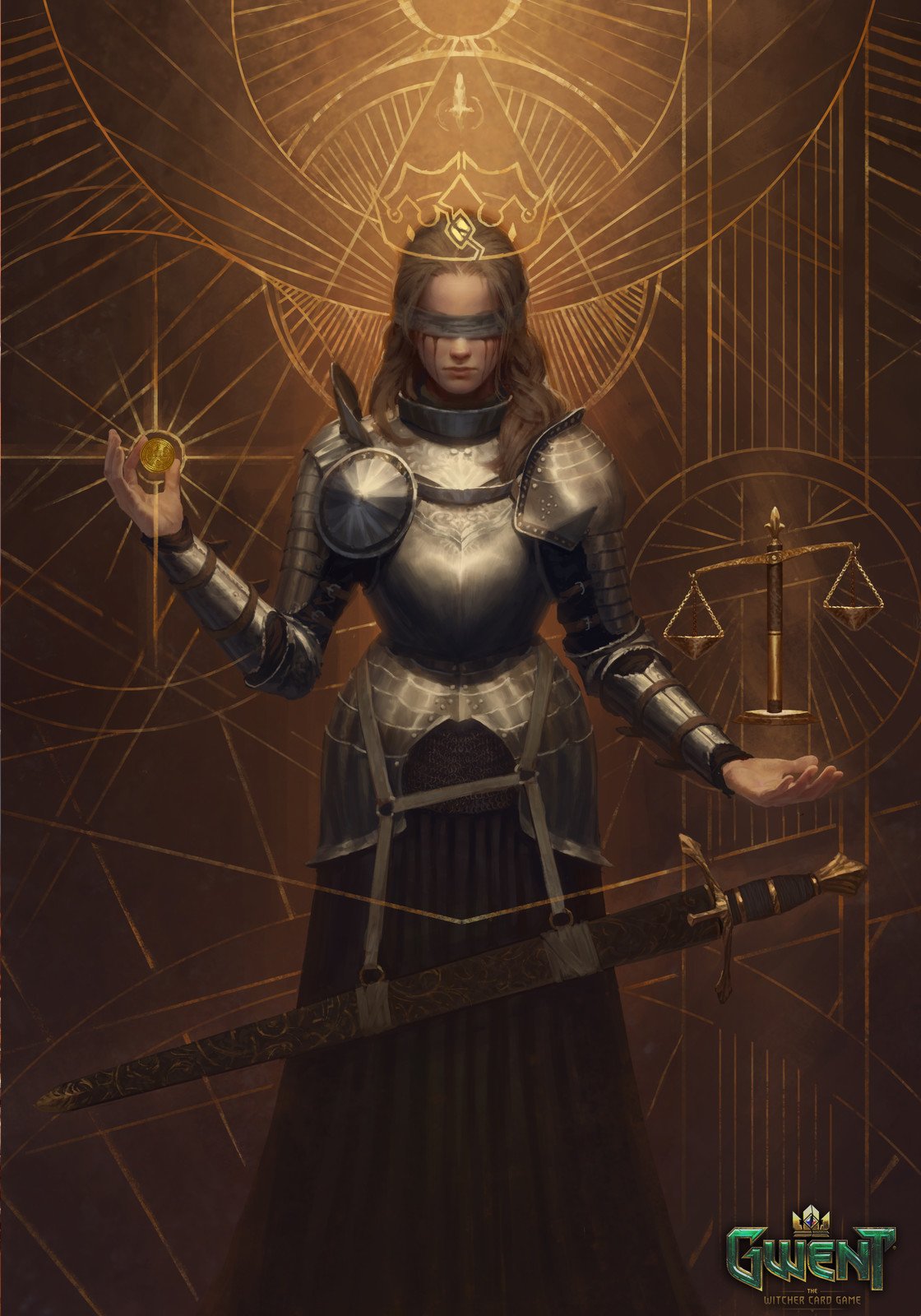

1 Point
Lucky Break
Whenever you make an attack roll, an ability check, or a saving throw, you can spend 1 karma point to roll an additional d20.
You can choose to spend your karma point after you roll the die, but before the outcome is determined. You choose which of the d20's is used for the attack roll, ability check, or saving throw.
3 Points
I Know a Guy
At any time you may expend 3 karma points to declare that your character "knows a guy".
You pitch an NPC that doesn't yet exist in the world to your DM, and how they might be able to help you. The DM considers the NPC, deciding if they should allow the use of this feature. If they agree, the NPC now exists in the world and should generally be willing to help the party.
The DM might require the players to undertake a favor for this NPC, or otherwise have their assistance come with complications.
5 Points
Miracle
At any time you may expend all 5 karma points to make the impossible a reality.
You pitch what you want to happen to the DM. The DM considers the pitch, deciding if it should be, and decides if the request will have consequences, what they will be, and pitches them back to the player.
The DM may allow the player to negotiate until they reach an agreement on the details. If no agreement is made, nothing happens and you lose 1 karma point.
Miracle Examples
- Take an extra full turn immediately with additional attacks
- Cast a spell you don't know without a spell slot
- Perform a maneuver or ability you don't know and couldn't possibly do naturally
- Cause an attack to automatically crit, and deal additional damage
- Receive the benefits of a long rest
- Force an enemy to lose their turn
Consequence Examples
- The character gains levels of exhaustion when combat ends
- The character is unable to cast spells until they finish a long rest
- The character takes 1d6 untyped damage per character level
- The DM rolls of a table of random effects - such as Wild Surge, or the Wand of Wonder
- The character fall unconscious for 1d4 hours
- The character dies
These examples are not exhaustive, and are intentionally kept simple. This feature is limited only by the imagination of those involved, and the trust between the players and DM.

PART 2
Wilderness Survival

The Wilderness
No one in Dungeons and Dragons travels into the wilderness lightly - no matter if they are everyday commoners, or legendary heroes. There are wolves, bears, griffons, owlbears, goblins, ghosts, elementals, demons, territorial elves and all other manner of creatures or entities in the wilds who will be happy to relieve you of your life, treasures or souls, not to mention the everpresent threat of death from exposure and starvation.
Food & Water
While adventuring you need to eat and drink, but keeping track of every pound of food and every liter of water individually is not what you came to do. However, it is a part of role playing that can provide excellent moments for story telling and plot development. Therefore food and water is combined in an easy to keep track of item: Rations. One ration provides food and water for a single party member for one day. Rations are easy to keep track of: One ration weighs 2 lbs and costs 5sp. Normal rations never go bad. Rations are bought before going into the wilderness.
Resting
The wilderness is dangerous and the PCs are taking their lives into their own hands when they venture out into it. In civilization, access to medicine, soft beds, apothecaries to provide spell components, and taverns to restore morale are assumed, but in the wilderness to get the benefits of long rest the characters will have to do more work to reach a state of equal comfort. When taking a long rest the characters go through a check list of roles and tasks:
1. The Camp-Master
The camp-master is responsible for finding a suitable spot to take a long rest. Long rests cannot be taken just anywhere. If there is no safe space, the party might not be able to take a long rest. The Camp Master can do a Nature check to see if they can find a suitable resting spot.
The difficulty of finding this spot successfully and leading the party to this spot without leaving too many tracks depends on the environment. Before rolling a Nature check the player can explain to the DM what kind of resting spot they are looking for - usually leisurous or fortified.
Wearing armor while sleeping
To receive the benefits of a long rest a character needs proficiency in the armor that they are wearing while sleeping.
2. Fire Keeper
The Fire Keeper is responsible for creating the campfire. Fire is not always necessary for a succesful long rest, but when the weather is cold a campfire is required to gain the benefits of a long rest. A campfire has upsides and downsides. On the one hand, a campfire provides vision and allows characters to cook their food which provides extra benefits. On the other, a campfire might increase the visibility of the party.
A firekeeper has the following options:
- Foraging for firewood & creating a fire. This involves a Nature check - searching takes 10 minutes per check.
- Creating a campfire with some other means that doesn't require firewood.
| Bonfire Size | Bright Light | Dim Light | Firewood Checks |
|---|---|---|---|
| Small | 40 feet | 20 feet | 1 |
| Average | 60 feet | 30 feet | 2 |
| Large | 80 feet | 40 feet | 3 |
3. The Forager / Hunter / Cook
The forager/hunter is responsible for providing food for the party. They have the following options:
- Use a ration. This is an easy foolproof way of providing food for the party, but it is relatively expensive.
- Hunt or forage for food & water. The character can go out into the wilderness to look for food. This will involve a Nature check. If they are successful, the party won't need to spend a ration that day. This option is not available if the character has no access to the wilderness.
- Provide food & water some other way.
- Prepare the food.
If the PCs find some way to take civilization with them (for instance by buying an extravagant tent or by using magic), long rests might come with extra benefits.
4. Setting up Security
This task is done by party collectively. What kind of security measures are set up by the characters is up to the players and is not subject to a standard set of rules. Security measures should be adjusted based on the kind of environment or resting spot the players are in and what kind of monsters they expect to encounter.
5. The Watch
This task is done by all people. If the weather is cold, the watch needs to stay near the campfire, but otherwise they may take some distance from the party if they wish to stay hidden from potential attackers.
This does not mean a character has to expose their "knives" - but they may if they wish in order to add extra zest to the rest.
Tall Tales and Ghost Stories
Sometimes to boost morale or encourage their fellow comrades, some characters may take time during the long rest to share tales they have come across in their previous adventures - or have heard of similar harrowing stories of other adventurers, heroes, saints, or even gods.
Doing so allows a character to greatly expand their background through roleplay - either by insinuating they have heard of a great tale in their travels, or by relinquishing previous adventures they may have been on (whether these tales of adventure are fictitious or factual are up to the storyteller).
Some stories that can be told may even open up the possibilities of further encounters or shape the very nature of the adventure itself. As a DM, consider how some tales may tie into your world and how it can shape your campaign.
A few examples of some tall tales are as follows:
-
One of the adventurers claims to have fought through an entire stronghold of goblins and survived.
-
A ghost ship that one of the characters believed to have seen off the coast of the continent they are on.
-
Tales of a unique and vicious monster unseen throughout the world, only known to dwell nearby.
-
A ballad of how a renowned hero saved the members of a kingdom by battling a great evil - never to be seen again.
-
Legends of an ancient artifact wielded by a saintly hero that records indicate may dwell in this land.
-
A story of how an otherworldly force fell to earth centuries ago in the nearby mountains.


Short Rest
In contrast to long rests, short rests don't require any specific preparation. However, some preparation is always recommended. Short rests still require a full hour to be effective.
You can only take two Short Rests before needing to finish a long rest.
Breather (variant rest)
A breather is an incredibly short period of rest, at least 10 minutes long, after a strenuous activity.
During a breather you may rest, slake your thirst and hunger, or check on a single wound and bandage it - represented in the following:
- Spend one Hit Die to regain Hit Points
- Use Healer's Kits, Potions, or other Consumables
You cannot spend more than one Hit Die during a breather, and if you choose to do any strenuous activity (such as casting a ritual spell, crafting, preparing traps, or similar activities) you forsake the ability to Spend a Hit Die to regain hitpoints.
You can only take one Breather before needing to finish a short rest.
Sleeping & Eating
Taking a long rest is not required, but characters still require daily sleep and sustenance. A character can go 1 + their Constitution modifier days (minimum of 1 day) without rations before they get an automatic level of exhaustion. When they go without sleep or meditation for 1 day, they get 1 level of exhaustion.
Light Activities
During a long rest, light activities such as copying spells into a spellbook, writing, scribing or studying are possible, granted that an adequate light source is available for said activity.
Exhaustion
The rules of exhaustion are expanded. The effects of exhaustion stack. Finishing a long rest reduces a creature's exhaustion level by 1
| Exhaustion level | Effect |
|---|---|
| 1 | Disadvantage on Mental ability checks (Int. Wis. Cha.) |
| 2 | Disadvantage on Physical ability checks (Str. Dex. Con.) |
| 3 | Speed halved |
| 4 | Disadvantage on attack rolls |
| 5 | Disadvantage on saving throws |
| 6 | Hit point maximum halved |
| 7 | Speed reduced to 0 |
| 8 | Death - no saves |
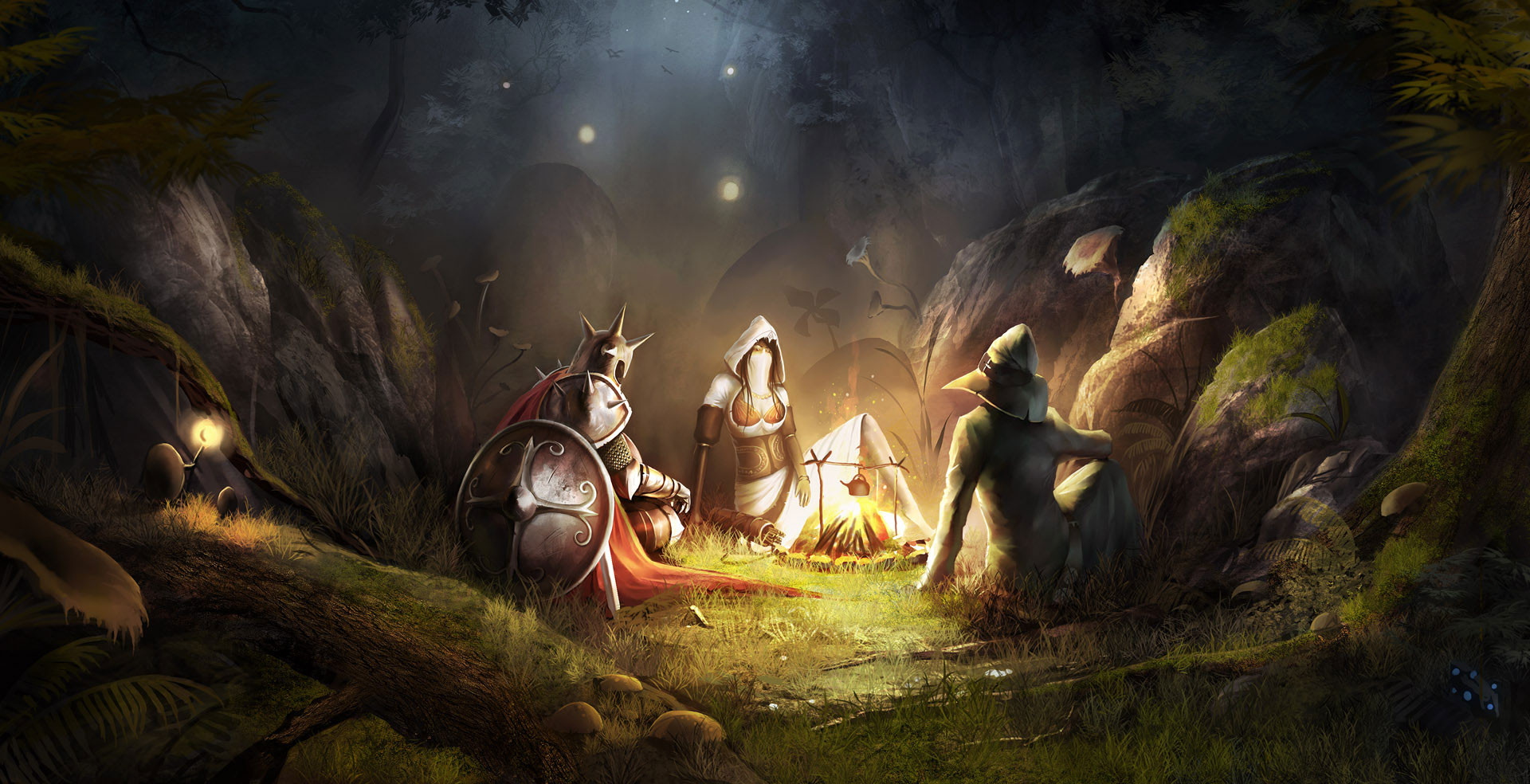





Traveling
The most important part of wilderness expeditions that most adventurers ignore to their peril is planning the journey.
The Jobs
Once the party is in the wild, there are three jobs that must be filled. The difficulty for each roll is based on the terrain the players traverse. If you have an accurate map, you have advantage on your survival check.
Rangers
The Natural Explorer feature of the ranger is modified under these rules. Now, instead of preventing the party from being lost and doubling the amount of food foraged, it simply means that the ranger automatically succeeds with whatever role he or she takes during the journey. Alternately, the ranger may choose to roll with advantage to try for a better than average result.
The Trailblazer
The trailblazer makes a Nature check to successfully navigate the terrain and make sure the party gets to where it's going.
The Quartermaster
The provisioner checks with if the party has enough rations for their journey and discusses with the party what specific items, clothing and equipment they might need for their wilderness travels. They may also make a Survival check to forage and hunt for additional food along the way.
The Scout
The scout makes a Perception check to watch for danger during the journey.
Using the wilderness
The wilderness is a source of amazing resources. Characters can gather these resources to either sell when they are back in civilization or create their own items with them.
Hunting, Foraging & Other Activities
In order to increase rations, characters can choose to make a Nature check to spend extra time on hunting and foraging. Any creatures found or killed while hunting can be harvested for parts according to the rules in the The Expanded Crafter.
Creating items
Players can create their own items! Read The Expanded Crafter for inspiration:
- Bombs, poisons & potions
- Additional alchemical recipes
- Armor & weapons




Weather
A part of Dungeons and Dragons that is often forgotten is the weather, but it can have a real impact on the lives the adventurers and the monsters they encounter. If you travel into the wilderness unprepaired there could be severe consequences.
Predictable
The weather usually behaves in predictable ways, so the characters can try to predict the weather with a Nature check. The weather is tied to the climate of the area, so the weather in arctic will be noticably different from the weather in the tropics. Additionally, weather will change over the four seasons, so plan accordingly.
Extreme Weather Conditions
| Type | Effects |
|---|---|
| Arctic Cold & Unbearable Heat | - When you spend a day outside in the arctic cold or unbearable heat make a DC 10 Constitution saving throw or gain 1 level of exhaustion. |
| Strong Wind | - In strong wind effective weapon range is reduced by 20%. - Because flying is difficult during strong winds, all medium (and smaller) sized creatures must either land at the end of their turn, or make a Dexterity or Strength saving throw or fall from the sky. |
| Gale | - During a gale, effective weapon range is reduced by 35%. - The loudness of the wind causes disadvantage on all Perception checks that rely on hearing. - Because flying is extremely difficult during a gale, all large (and smaller) sized creatures must either land at the end of their turn, or make a Dexterity or Strength saving throw or fall from the sky. - During a gale in the desert, there is a chance of a sandstorm. |
| Storm | - During storms, effective weapon range is reduced by 50%. - The loudness of the wind causes disadvantage on all Perception checks that rely on hearing. - Because flying is almost impossible during storms, all large (and smaller) sized creatures must either land at the end of their turn, or make a Dexterity or Strength saving throw or fall from the sky. - Any open flames are extinguished by the wind. |
| Blizzard or Thunderstorm | - In addition to the effects of a storm and heavy rain, snow, or hail, a blizzard and thunderstorm reduce normal vision to 40 feet. - Perception checks that rely on sight have disadvantage. |
| Rain or Snow | - During rain or snow effective weapon range is reduced by 20%. - Normal vision is not significantly reduced. - Can be devoid of wind conditions. |
| Heavy Rain, Snow or Hail | - During heavy rain, snow or hail effective weapon range is reduced by 35%. - Any open flames are extinguished by the rain and snow. - Heavy rain causes disadvantage on Perception checks that rely on hearing and/or sight. - Normal vision is reduced to 60 feet. - Can be devoid of wind conditions. |
| Sandstorm | - During a sandstorm, normal vision is reduced to 5 feet. - Any open flames are extinguished by the sand. - The sand also causes disadvantage on Perception checks that rely on sight. |
| Fog | - During fog normal vision is reduced to 15 feet. - The fog also causes disadvantage on Perception checks that rely on sight. |
Be prepared
The effects in the 'Extreme Weather Conditions' are not exhaustive. For example, heavy rain can cause creatures to become soaked, which makes lightning based attacks more effective. When in doubt about effects, ask your game master.
The downside of most effects can be negated by proper preparation. For instance, wearing sand goggles during a sandstorm increases normal vision up to 30 feet. Prepare with the proper equipment before going out in the wilderness. Be creative!
